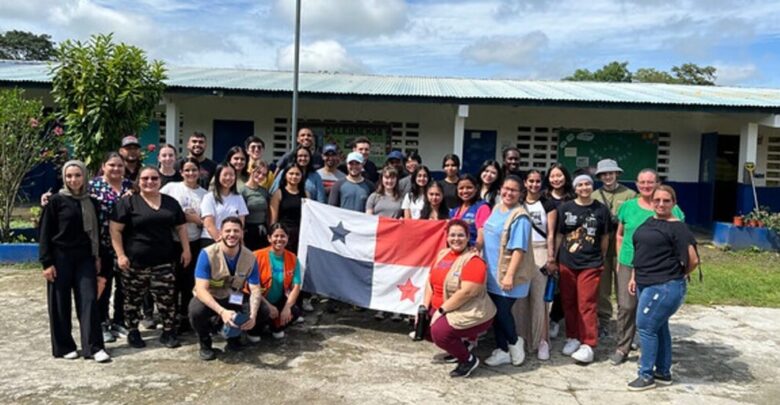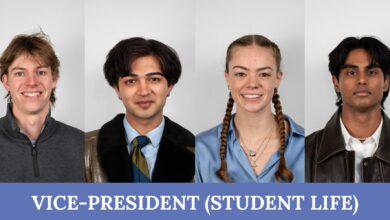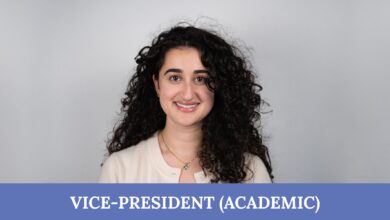Global Brigades U of A supports communities around the world
The chapter's goal is to "make communities more self-sustainable," GB U of A's chairperson says.
 Supplied
SuppliedGlobal Brigades (GB) is an international non-profit organization consisting of students from different universities around the world. The organization takes a holistic approach to meeting the health and economic needs of communities across South America, Ghana, and Greece. The Global Brigades University of Alberta Chapter (GB U of A) is one of several university chapters around the world.
According to GB U of A’s campus chairperson, Victoria Johnston, the Chapter’s goal is to “make communities more self-sustainable.” GB U of A student volunteers spend a week during the summer supporting a vulnerable community abroad. Since its inception two years ago, GB U of A has sent student brigades to Honduras, Panama, and Greece.
Johnston explained that GB U of A takes a multi-pronged approach to supporting communities with various brigades including a medical brigade, dental brigade, public health brigade, and a business brigade.
“We get a lot of input from the communities,” Johnston says
Jasdeep Dhaliwal and Micah Truong are both leaders of GB U of A’s medical brigade. For Dhaliwal, “what really stood out about GB compared to other [U of A] student groups is the holistic model.”
GB partners with governments and communities to decide what supports are needed. “We get a lot of input from the communities,” Johnston said. She added that it allows for a community-tailored approach.
Last year, the medical brigade went to the Darien province in Panama. Truong explained that the region is suffering from an extreme doctor shortage. “It’s hard to even imagine the [doctor] shortage compared to ours,” she said.
During the week-long trip, three days were clinic days where volunteers supported medical staff at different stations. There was a patient consultation station, a dental station, and a pharmacy station for dispensing medication.
“We try to rotate [between stations] so that everybody gets to experience everything,” Truong said.
The eco-stoves “helped with any respiratory issues,” Dhaliwal says
Along with the clinic days in Panama, there were other itinerary items such as a public health day. On this day, volunteers went into community members’ homes to build eco-stoves, which are environmentally friendly cooking stoves.
Johnston explained that an eco-stove filters out the ash used for making cooking fires outside the home. The eco-stoves gave community members cleaner kitchens but also “helped with any respiratory issues,” according to Dhaliwal.
Given that the eco-stoves will be used for years to come, the medical brigade will be building them again this summer. “We’re doing that again this year because it was really, really rewarding,” Dhaliwal said.
“It’s sort of like making friends on steroids,” Truong says
Johnston spoke about the skills volunteers learn on brigades. For example, interacting and communicating with clinic patients in a new language required strong teamwork. She thinks co-ordinating multiple volunteers also teaches leadership skills.
“It’s sort of like making friends on steroids,” Truong said.
For Dhaliwal, observing first-hand the experiences in vulnerable communities allowed for some introspection.
“It’s been really eye-opening. I feel like we never take the time to realize how privileged we are,” Dhaliwal said.




